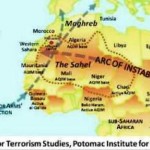Strategic perspectives on conflict prevention in the Sahel
Never has the Sahel gained as much international attention as since last year. Much of this attention has centred on the crisis in Northern Mali. More recently, the broader Sahel region and the interdependence of various regional challenges have come to the fore. Besides discussing short-term challenges and solutions, however, the long-term angle has remained underappreciated. This is the gap, which a two-day workshop at the Friedrich-Ebert-Stiftung (Berlin, 23-24 April 2013) aimed to fill. It brought together policy-makers and analysts from ECOWAS, the African Union, the UN, and from European governmental and non-governmental institutions under Chatham House rules to weigh options on how to tackle the strategic dilemma in the wider Sahel.
The following long-term challenges were identified: human insecurity; a dire economic and societal situation; intra- as well as inter-institutional dysfunction. Analysts from the region agreed that the Sahel risks becoming a terrorist epicentre in the long run. Even if the realisation of profits remained a stronger motive than religious extremism and despite governmental efforts to counter further degradation, the increased trafficking and violence perpetuated by different kinds of armed groups was bound to create growing spill-over effects across national boundaries.
The most obvious consequence was an ever-growing insecurity, which was aggravated by the growing penetration of all levels of social and political life by organised crime. Participants of the workshop agreed that the term ‘criminal political economy’ was appropriate to draw attention to this situation, as it captured best the degree to which criminal patterns were interwoven with economic and political systems.
It was agreed that governance systems had not delivered on their promises in many instances. Quite to the contrary, corruption remained omnipresent; the explosion of the population overburdened rudimentary social security mechanisms; job-markets were not able to cope with the scores of unemployed youth. Tackling the demographic changes and creating social and economic opportunity was thus identified as a crucial task in every country under consideration.
Finally, institutional challenges were discussed on several levels: As for local, state, and national institutions, village and family structures formed the backbone of many of the societies under consideration. However, such local structures were seen to be quite diverse, their ‘governance effects’ hard to measure. Still, identifying legitimate leaders mattered in every case. Clean elections and peaceful political mobilisation were seen as key tools to harness legitimacy and local ownership.
Regarding regional and international organisations, three deficits were recognised: intra-organisational design, insufficient output, and inter-organisational co-operation. Participants asserted that “the Sahel” lacks regional political fora as well as an institutional umbrella. The reasons are due to geography, tradition and national interest. The unfortunate consequence was that interdependencies were not being discussed sufficiently. Discussants thus saw a need for inter-organisational cooperation, for instance, between the states of the Maghreb, ECOWAS, and the EU. While, against the backdrop of the strategic map, an involvement of external actors was felt to be necessary, regional powers would have to be the drivers of any such process.
Friedrich-Ebert-Stiftung
Peace and Security Centre of Competence Sub-Saharan Africa
Point E, Rue de Fatick x Boulevard de l'Est,
Residence Bity Lokho, 6th floor
B.P. 15 416
Dakar - Fann



